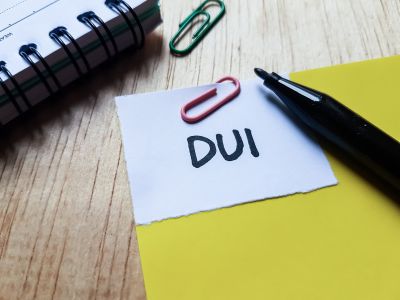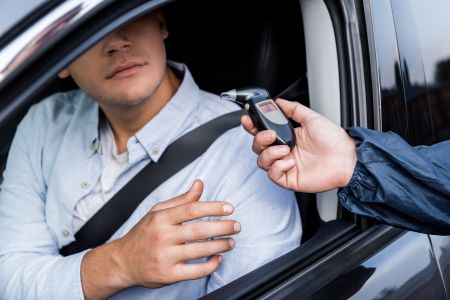Recent Blog Posts

Are There Different Types of Intoxicated Driving Charges in Colorado?
Every state has its own intoxicated or impaired driving laws, which allow law enforcement officials to stop and arrest motorists for offenses involving driving while under the influence of or while intoxicated by alcohol or drugs. In Colorado, there are several different types of intoxicated-driving offenses, and it is important to understand the circumstances... More

Is a Warrantless Search a 4th Amendment Violation?
Arrests for felony offenses in Colorado often result from searches. In other words, law enforcement officers will frequently make an arrest after searching a person or their property and finding a controlled substance, stolen goods, or a weapon. Generally speaking, law enforcement officials are supposed to have a valid warrant signed by a judge... More

Driver Arrested in Loveland Car Accident on Interstate 25 That Killed Child
Box Truck Driver Facing Multiple Criminal Charges, Including Vehicular Homicide, After Child Died and Several Others Were Injured in Loveland Collision on Interstate 25 A box truck driver was charged in a fatal Loveland car accident on Interstate 25 near Mile Post 259. Larimer County officials are saying the accident took place around 12:27... More

Woman Arrested in Lakewood DUI Accident That Left One Person Dead
Female Driver, 20, Charged With Vehicular Homicide and DUI After Deadly Lakewood Collision by Kipling Parkway and West 6th Avenue Frontage Road A 20-year-old woman is facing multiple criminal charges after a deadly Lakewood car accident near the intersection of Kipling Parkway and West 6th Avenue Frontage Road. Jefferson County officials are saying that... More

DUI Arrests During the Holiday Season
During the holiday season in Denver, there are various occasions for consuming alcohol before traveling home again. Whether you are attending a work function or a holiday gathering with friends and family, drinks tend to be commonplace. It is critical to know that law enforcement officials also know that alcohol consumption tends to rise... More

Over 1000 Colorado Criminal Cases Under Review After DNA Analyst Charged With Misconduct
Colorado DNA Analyst Yvonne “Missy” Woods Facing 102 Criminal Charges for Misconduct Related to Faulty DNA Testing A recent forensic scandal may have compromised the integrity of DNA evidence used in many criminal cases across the state of Colorado. In particular, more than 1000 cases from 1994-2023 are currently under review due to faulty... More

Steps to Take When You Are Facing Domestic Violence Assault Charges
Were you recently arrested for and charged with domestic violence assault? If so, it is critical to have a clear understanding of the charges you are facing and to do everything you can to avoid having a domestic violence criminal conviction on your record. If you are convicted of a domestic violence offense, the... More

Woman Facing DUI & Child Abuse Charges After Nearly Hitting Patrol Car
Commerce City Police Department Arrested Woman After She Nearly Hit Patrol Car While Traveling 92 MPH A woman was arrested on suspicion of DUI after allegedly nearly hitting a patrol vehicle on Highway 2 in Commerce City. Commerce City officials are saying that the incident took place on Monday. The woman was driving to... More

Can I Challenge Breathalyzer Results?
Were you recently arrested for driving while ability impaired (DWAI) or driving under the influence (DUI) in the Denver area? If so, you were likely given a breathalyzer test that registered your blood alcohol concentration (BAC). Based on breathalyzer results, you can face DWAI charges in Colorado if you have a BAC of 0.05... More

Driver Arrested in Colorado Springs for Alleged DUI, Assaulting Police Officer
Single Vehicle Traffic Crash on Astrozon Boulevard Leads to DUI Arrest of Female Driver in Colorado Springs A female driver was involved in a single-vehicle traffic collision on the 4200 block of houses on Boulevard in Colorado Springs. Colorado Springs police officers were called to the scene of the collision to help the victims.... More
